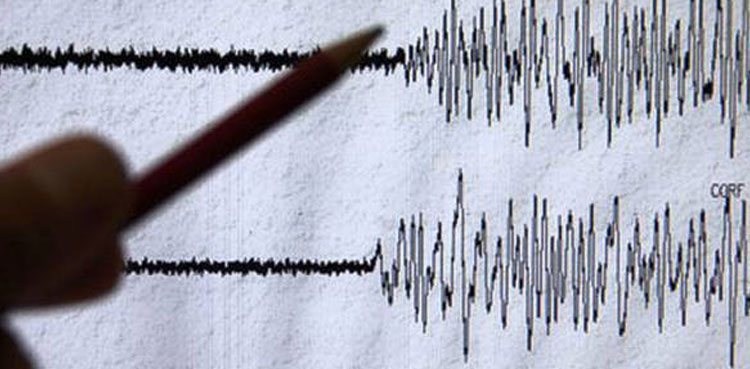
A powerful earthquake struck central Japan on Friday, forcing a brief suspension of bullet train services, but no tsunami warning was issued, authorities said.
The 6.5 magnitude quake hit the central Ishikawa region at 2:42 pm (0542 GMT) at a depth of 12 kilometres (seven miles), according to the Japan Meteorological Agency.
Shinkansen bullet trains were suspended between Nagano and Kanazawa, a popular tourist destination, but resumed less than two hours later, according to Japan Railway.
There were no confirmed reports of casualties or damage.
Friday is a public holiday in Japan, part of a run of days off known as “Golden Week”, a time when many people travel for leisure or to visit family.
In the city of Suzu, the quake registered an upper six on the Japanese Shindo seismic scale, which goes up to a maximum of seven, meaning it could cause major landslides.
The United States Geological Survey put the magnitude at 6.2 and said it struck just off the coast, but Japan’s Meteorological Agency placed the epicentre on land.
Earthquakes are common in Japan, which sits on the Pacific “Ring of Fire”, an arc of intense seismic activity that stretches through Southeast Asia and across the Pacific basin.
However, Japan has strict construction regulations intended to ensure buildings can withstand strong quakes and routinely holds emergency drills to prepare for a major jolt.
A 6.9 magnitude quake struck a fishing village on the Noto peninsula in the same region in 2007, injuring hundreds and damaging more than 200 buildings.
The Noto peninsula is a rural area on the Sea of Japan coast known for its natural scenery and seafood. The peninsula’s population is around 340,000, according to 2015 census data.
Japan is haunted by the memory of a massive 9.0-magnitude undersea quake off its northeast in March 2011, which triggered a tsunami that left around 18,500 people dead or missing.
The 2011 tsunami also sent three reactors into meltdown at Japan’s Fukushima nuclear plant, causing the nation’s worst post-war disaster and the most serious nuclear accident since Chernobyl.
Government spokesman Hirokazu Matsuno told reporters in Tokyo that no abnormalities had been detected at the Shiga and Kashiwazaki-Kariwa nuclear power plants in the area affected by Friday’s quake.
“Some sea level changes are expected but there is no tsunami risk,” Matsuno said.
Kenji Satake, a professor at the University of Tokyo’s Earthquake Research Institute, told public broadcaster NHK that aftershocks would likely continue for a week.
“The Noto region has been quite seismically active in recent years,” he said.
In March last year, a 7.4-magnitude quake off the coast of Fukushima shook large areas of eastern Japan, killing several people.
The capital Tokyo was devastated by a huge earthquake in 1923.
from International News Today - Breaking News, US News, World News https://ift.tt/DuSwTgW
via IFTTT